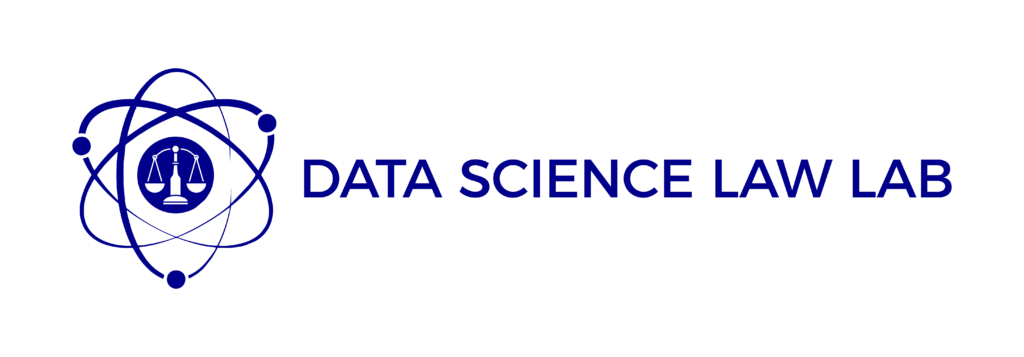University of Pretoria-Meta AI Policy Dialogue Event Report: Responsible AI
Prepared by Ms Belinda Matore (Doctoral researcher, Data Science Law Lab)
On 20 March 2024, the University of Pretoria (UP) hosted the UP-Meta AI Policy Dialogue, which aimed to foster a “Triple Helix” discussion between academia, industry, and government stakeholders. The key focus was on responsible AI development and deployment, with a specific emphasis on the African continent. Award-winning journalist at SABC, Ms Palesa Tau moderated the event excellently.
The dialogue commenced with opening remarks from Professor Elsabe Schoeman, Dean of the Faculty of Law at UP, and Professor Sunil Maharaj, Vice Principal of Research at UP. Professor Maharaj emphasized the importance of fostering responsible AI for the future of higher education and societal interactions. He further highlighted UP’s commitment to collaboration in areas such as open science and transdisciplinary research, crucial aspects of responsible AI development.
Mr. Kojo Boakye, Vice President, Public Policy, Africa, Middle East and Turkey (AMET) Meta, underscored the significance of responsible AI development and the ongoing collaboration between Meta and UP in this area. He emphasized the need for inclusive participation, including collaboration with civil society organizations, in shaping effective AI frameworks.
Keynote speaker, South Africa’s Deputy Minister of Higher Education, Science and Innovation, Mr Buti Manamela, articulated a compelling vision of AI as a catalyst for transformative change across diverse sectors in Africa. He highlighted its potential applications in healthcare delivery, agricultural productivity, financial services, infrastructure development, sustainable natural resource management, and cultural heritage preservation. Deputy Minister Manamela stressed the necessity for collaborative efforts involving government bodies, academic institutions, private enterprises, and grassroots innovators to fully harness the transformative potential of AI. He further outlined various government initiatives aimed at fostering an enabling environment for AI research, innovation, and implementation.
Dr. Chijioke Okorie, Leader of the Data Science Law Lab provided valuable insights on the policy challenges specific to low-income countries. She emphasized the shift from “what to do” to “how to implement” as a core challenge. She further emphasized the critical need for transdisciplinary dialogues, like the Triple Helix model, to bridge the gap between research and implementation. Dr. Okorie further highlighted the importance of context-specific approaches to AI policy in Africa, recognizing the diverse experiences and impacts across different countries and communities. She discussed ongoing initiatives at UP, particularly within the Faculty of Engineering, Built Environment, and Information Technology, aimed at promoting responsible AI development through collaboration with industry partners like Meta.
What followed was fireside chat between Dr Okorie and Meta’s President of Global Affairs, Sir Nick Clegg. Nick Clegg emphasized the importance of responsible innovation while acknowledging the long-standing presence of AI technology. He highlighted the foundational research conducted by companies like Meta, which contributed to transformative AI technologies. However, Nick Clegg cautioned against exaggerated fears surrounding AI, emphasizing the limitations of large language models.
Transparency and accountability in AI development were key themes addressed by Sir Clegg. He cited Meta’s efforts to publish system cards detailing the signals used in its AI systems. Additionally, the importance of labeling AI-generated content and addressing ethical concerns regarding data privacy were discussed. Sir Clegg further underscored Meta’s commitment to openness and transparency, particularly concerning online safety and election integrity.
Following from the chat with Nick Clegg were several panel discussions involving Dr Chijioke Okorie (Leader, Data Science Law Lab, University of Pretoria); Doga Makiura (CEO, Dega); Professor Emma Ruttkamp-Bloem (Centre for AI Research, University of Pretoria); Leonora Tima (Managing Director, Kwanele ); Dr Rachel Adams (CEO, African Observatory on Responsible AI); and Professor Vukosi Marivate (Leader, Data Science for Social Impact, University of Pretoria).
The discussions delved into the complex intersection of technology, ethics, and social responsibility. A key point of contention was the utilization of publicly available data to train AI models. Speakers acknowledged the ethical considerations surrounding data usage, particularly concerns regarding ownership and privacy of personal information. The ongoing debate on fair use doctrines in the context of data usage for training AI models was also highlighted.
The conversation extended to the broader societal implications of AI technology. A vision for a future where personalized AI assistance is democratized across socioeconomic boundaries was explored. This vision encompassed AI applications in education, healthcare, and agriculture, fostering enhanced productivity and societal well-being. The discussion also touched upon contrasting business models in the tech industry, with a focus on the potential benefits of open-source approaches for democratizing access to AI tools and services.
The unique challenge of linguistic diversity in AI development for Africa was addressed. Panelists emphasized the need to preserve and promote linguistic diversity by developing AI tools and resources for low-resource languages. Projects like the African Next Voices Project were mentioned as examples of initiatives aimed at addressing this challenge.
The conversation concluded with a focus on ethical and governance challenges associated with AI development and deployment in Africa. The panelists emphasized the need for responsible AI practices and the crucial role of institutions, civil society, and media in shaping ethical guidelines and ensuring accountability in AI governance.
The UP-Meta AI Policy Dialogue facilitated a comprehensive exploration of key issues surrounding AI development and implementation. Discussions covered data ethics, AI democratization, linguistic diversity, and responsible AI governance, showcasing the complex interplay between technology and society in shaping the future of AI.
Watch some highlights from the event and the introduction of the UP-Meta AI Policy Dialogue.

